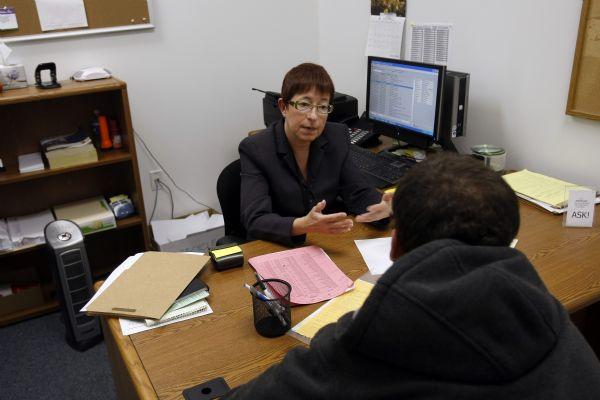Prison reform advocates were appalled when Los Angeles County’s top elected officials last month agreed to lease an empty jail about two hours from Downtown LA.
“It’s so disappointing,” Lynne Lyman, the California director for the Drug Policy Alliance, a national advocacy group, said at the time.
Los Angeles County, which includes the city of LA, already had more people behind bars than any other U.S. county or city -- more than Miami and New York City combined. By adding the remote Taft city jail to its network of crowded facilities, the county would be able to lock up about 500 more people, raising its total inmate population as high as 22,000.
But on Tuesday, the county scrapped the plan after a key supporter changed her mind. Now, the county will have to come up with another way to relieve overcrowding in its jails.
County Supervisor Gloria Molina, who joined two of her colleagues in a 3-2 vote for the deal last month, told the Los Angeles Times she reversed her position after learning about an ongoing legal battle over the Taft jail. Until 2011, California used the Taft facility to house state inmates. Last year, Taft sued the state, after the state canceled the contract.
Molina told the LA Times she didn’t want the county to get dragged into the dispute. Molina’s office did not immediately respond to requests for comment from The Huffington Post on Wednesday. Molina generally favors jail expansion, and the county is likely to come up with another plan for enlarging its jail system soon.
In the meantime, prison reform advocates said they hope to convince Molina and the other county supervisors to support what they call “alternatives to incarceration.” That includes substance-abuse treatment, transitional housing, and other programs aimed at making sure people don’t go back to jail after they’re freed.
“Most of the people going into the jail system were already disconnected from basic services, such as housing, health services, and employment,” said Lyman. “Services provided after release can help them establish a basic foundation that moves them toward long term stabilization and ensure they do not return to jail.”
LA’s struggle with jail overcrowding goes back to 2011, when Gov. Jerry Brown (D) signed a law that shifted responsibility for many low-level, nonviolent offenders from the state to the counties in an attempt to ease overcrowding in state prisons.
To fund the program, Brown dedicated a portion of state sales tax revenues and vehicle licensing fees to the counties. In the program’s first three years, Los Angeles has received more than $700 million.
Lyman and her colleagues said they had hoped the county would spend that money on substance-abuse treatment programs, prisoner-reentry programs, and other alternatives to incarceration.
So far, however, only about 5 percent of LA’s funds have gone to reentry programs, although an additional 15 percent has gone to the Department of Mental Health and the Department of Public Health for treatment services.
“We are not investing in what we know works,” said Lyman.
In some parts of California, including San Francisco and Santa Clara, counties have invested in a different approach. Two years ago, for example, Santa Clara opened a reentry center that provides services to people coming out of prison or jail.
Ten months after the program began, only 20 percent of released inmates in the county were getting rearrested, compared with about 65 percent before the center opened.
By investing in similar programs, prison reformers said, LA could reduce its jail population by thousands of inmates.
“I walk the jails every month,” said Herman Avilez, the head of California Drug Counseling, a group that provides substance-abuse counseling and other services to low-income people in Pasadena. “Those places are packed with people that shouldn’t be in there.”
 The signing of AB 218, the Fair
Chance Employment Act, by Governor Brown creates enormous potential for
California, formerly incarcerated people, and the community as a whole.
Now people with records will have a better chance to become employed, and thus
to sustain themselves, their families, and contribute to their larger
community.
The signing of AB 218, the Fair
Chance Employment Act, by Governor Brown creates enormous potential for
California, formerly incarcerated people, and the community as a whole.
Now people with records will have a better chance to become employed, and thus
to sustain themselves, their families, and contribute to their larger
community.
 “California corrections has undergone major changes in recent years, and we are ready to support the expansion of community-based services to reduce recidivism with these evidence-based programs,” said Loren Grayer, divisional vice president of Geo Reentry Services.
“California corrections has undergone major changes in recent years, and we are ready to support the expansion of community-based services to reduce recidivism with these evidence-based programs,” said Loren Grayer, divisional vice president of Geo Reentry Services.